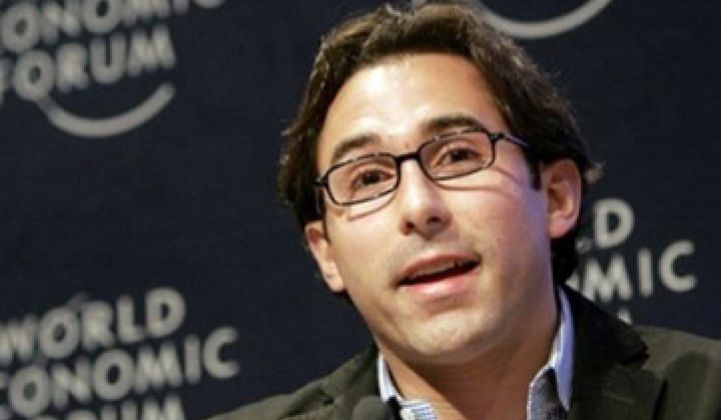Peter Corsell, the founder of GridPoint and CEO since the company's inception, has stepped down, while president Mike Lach has left to pursue "other interests."
John Spirtos, the chief strategy officer and formerly a software executive, will take over as interim CEO. Corsell will remain as the non-executive chairman.
Corsell's change in role will likely set off a round of speculation about the future of GridPoint, one of the most discussed, and arguably, most controversial companies in smart grid. The Arlington, VA-based company -- which has raised over $200 million from investors -- started out in the early part of the decade promoting a system for managing energy in upper-middle-class homes. Because energy prices were still comparatively low at that point, the market failed to develop.
Later, GridPoint decided to take the software and transform it into an operating system for the grid. To enhance its portfolio, the company went on a buying spree. It bought V2Green, which allows utilities to communicate with electric cars, in 2008, and followed in 2009 with Lixar, which makes building energy management consoles and tools.
This February, GridPoint acquired Standard Renewable Energy, a retrofitter with a solar division, a move that ushered in phase three. Under the new plan, GridPoint started to offer residential and commercial energy retrofits, advice and help on distributed energy generation, and then used the software tools it has concocted over the years to monitor and manage the facilities it touches. The business plan echoes some elements of the business strategies used by EnerNoc, Recurve and SolarCity, and even a few large conglomerates like Johnson Controls and Siemens. As part of the new plan, GridPoint also hired executives from Microsoft and elsewhere to staff key positions.
"We will beat $100 million in revenue in 2010," Corsell told us in March. "We and Silver Spring are by far the most successful [smart grid] companies."
A few months later, GridPoint landed a $28.7 million contract with the U.S. Postal Service.
Critics, though, have claimed that the company has shifted strategies a bit too much and has not landed the kind of big utility deals that have come to the likes of companies such as Trilliant. That $100 million revenue figure raised a number of eyebrows. Most believed that GridPoint could only hit that mark through acquisitions. The timing couldn't have been worse for getting into retrofits, either: a few months after the Standard acquisition, Freddie Mac and Fannie Mae put the kibosh on the PACE programs for funding retrofits.
The company has allegedly been gearing up for an IPO, but with the seating chart in the executive suite uncertain and revenues perhaps not growing as fast as those of the company's competitors, GridPoint would be a tough sell.
As for Corsell, he's one of the best speakers in smart grid, but critics have questioned the company's ability to execute consistently on its plans.
"GridPoint's investors can only hope for an acceptable IPO or a strategic sale. On the strategic sale front, that option becomes increasingly less attractive to the extent that GridPoint is a hodgepodge of various solutions and services," one source told us earlier this year. "Also, as it gets bigger and bigger with an increasing price tag, the world of potential acquirers shrinks."
The company has also seen its share of executive shifts and a few layoffs in the past. Mike Carlson, whom GridPoint recruited from Xcel, involuntarily left the company, as have a few others. Comments left on our past GridPoint articles reveal a lingering trail of ill will, as well.



